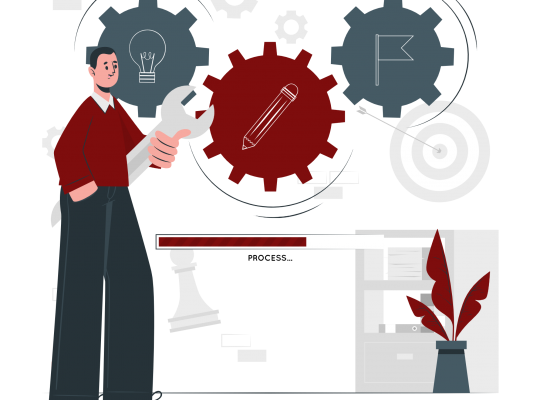In the ever-changing world of technology, discussions often revolve around Artificial Intelligence (AI) – the pursuit of developing machines that can simulate human cognition and behaviour. However, there’s an equally riveting concept that warrants attention – Intelligence Augmentation (IA). IA is centred around utilising technology to enhance our inherent human intelligence.
AI and IA propose different philosophies concerning the relationship between humans and technology. AI is about creating autonomous systems capable of independent thought and action. Conversely, IA underscores a human-centric approach, aiming to amplify human cognitive capabilities. It anticipates a future where technology doesn’t supersede us but becomes a key extension of our mental faculties.
Collaborative Decision-Making
A major application of IA lies in decision support systems. These technologies offer insights and recommendations derived from extensive data analysis, assisting humans in making more informed decisions. A particularly impactful instance is in the healthcare sector. Consider an IA system designed to aid doctors in diagnosing complex conditions like cancer. It can sift through vast databases of medical literature, patient records, and research data to suggest potential diagnoses. The doctor maintains the final say, but the IA system provides invaluable, time-sensitive insights that could potentially save a patient’s life.
Cognitive Enhancement
Beyond decision-making, IA directly aims to enhance human cognitive abilities. Innovations like neurofeedback devices and brain-computer interfaces (BCIs) demonstrate promising potential. For instance, BCIs can analyse brainwave patterns and provide real-time feedback, enabling individuals to train their brains to achieve better focus, reduce stress, or even learn new skills more rapidly. Similarly, neurofeedback devices can be used to manage conditions like ADHD or anxiety, promoting mental well-being.
Learning and Education
Education is another promising domain for IA. Adaptive learning platforms are capable of customising educational content to suit each student’s unique learning style and pace. Consider an IA-enabled learning platform used by a student struggling with mathematics. The system adapts in real-time to the student’s responses, identifying areas of weakness and tailoring exercises to those areas. It could provide additional exercises on topics where the student struggles, and speed up in areas where the student excels. This personalised approach makes learning more efficient and effective, allowing every student to make the most of their educational journey.
The Ethical Aspect
While the possibilities are thrilling, IA brings along significant ethical considerations. Issues around accessibility, privacy, and potential misuse are paramount and must be addressed as we navigate this new frontier. As we progress, ensuring these technologies are used responsibly and equitably is a critical challenge.
In conclusion, IA encourages us to envisage a future where technology is seamlessly integrated into our cognition and everyday lives, augmenting our innate abilities and helping us achieve our fullest potential. While AI focuses on machines mimicking human intelligence, IA is about humans and machines working in harmony, capitalising on the strengths of both to build a better future.
As we stand at the threshold of this exciting era, one thing is clear: instead of fearing that technology will replace us, we should be exploring how it can enhance us. The future of intelligence might not be artificial, but augmented.
<a href=”https://storyset.com/technology”>Technology illustrations by Storyset</a>






